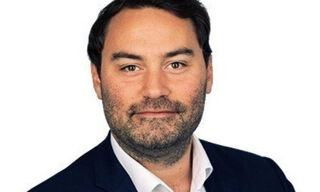Dominique Gerster: «Crisis Communication: Principles Are Better Than Plans»
Crises don't usually keep to ready-made communication plans. That means that flexibility, commitment, and basic principles can end up being far more important, Dominique Gerster writes in a piece for finews.first.
finews.first is a forum for authors to comment on economic and financial topics.
Crises in the financial industry often result in negative public attention, prompting substantial reputational and business damage that can end up taking a variety of forms. They have different causes, drivers, and consequences requiring specific, tailor-made communications.
Having a prepared communication plan in place for sets of selected scenarios is part of prudent business continuity management. However, they don't often anticipate the exact incident involved, and they can end up being ignored during the hectic pace of events at the outbreak of any new crisis.
Usually, when it comes to disclosable, public business transactions, the processes are reasonably predictable and can be planned. As an example, when a bank suffers a loss as a result of inadequate risk management, details need to be communicated as soon as the full extent becomes known.
«One-offs and external causes: minimum of planning is given»
The financial damage might be high and the public reaction fierce, particularly when it first becomes known. But the reputational damage is manageable in the long term – especially if it is «only» an isolated, singular event followed by consistent reassessment.
External shocks such as a pandemic or geopolitical incidents can pose a more daunting challenge to business continuity as they are hard to predict. Any communication plan is essentially a derivative of the pace-setting business plan for coping with the crisis itself, which can alleviate the pressure on the communications department. Depending on the event, the focus might not be as harsh on individual companies because an entire industry or, as in the case of COVID-19, the entire planet can be affected.
«Aggrieved customers gnaw at reputation»
Incidents in which customers or investors suffer damage are more complex and from a communication point of view. The question of whether and to what extent a bank is responsible can become a matter of public debate.
Lasting reputational damage can ensue when an agreement isn't reached quickly, particularly when the bank in question and its (former) clients trade blows publicly for years. Those responsible for communication are often on the back foot, repeatedly surprised by the new lawsuits, court defeats, and aggrieved customers who, with the support of PR consultants, go public with their story years after the actual event.
«Total chaos: reputational and trust crises»
Communications experts are particularly challenged during reputational crises where the cause or «the enemy», is not identifiable. Such cases can involve the media addressing business practices that are illegal or at least inappropriate. They can also result when the integrity of a member of the executive board is questioned, with the media often resorting to unnamed sources.
In such cases, the facts are difficult to establish internally because they involve topics that are closely linked to the private lives of the person being criticized persons − or are the subject of ongoing investigations. As a result, it is extremely hard to identify the ideal mileposts in advance and the communications department is often caught up with and overtaken by some new permutation of the original issue.
Five Principles of Crisis Communication
What all the types of crises at financial institutions outlined here have in common is that communications management can be planned in the best of cases, although it doesn't happen often. Given that, communication managers should consistently follow five principles that are always central in any emergency.
- 1. Rapid Establishment of a Crisis Team
The rapid availability of responsible decision-makers is key. As a rule, in addition to the CEO, this includes at least those responsible for human resources, legal services the affected business unit, and corporate communications.
The core team meets up to several times a day to establish the facts and derive the necessary measures. The communications officers provide information on the quantity as well as tonality of media coverage and develop scenario-based statements. In addition, they plan media conferences and discussions with journalists, if necessary.
- 2. Employees and Customers Deserve Special Attention
When the global business media conjures up doomsday scenarios with stark headlines or calls for heads to roll in social media, management's attention reflexively turns to the coverage and the posts, and how to respond. Typically, the interests of employees and customers take a back seat.
When it is no longer possible to inform employees about new findings in real-time, the company loses its communication power because employees start to, very understandably, interpret speculative headlines as facts and answer their customers' questions based on media articles and similar.
- 3. Ensure the Flow of Information in the Company
Just as the CEO receives regular communication updates, communicators and media spokespersons must have access to the facts such as investigation reports, court rulings, or legal opinions at all times. Only an informed team can ensure that the company can maintain information discipline publicly.
In addition to a crisis team staffed by decision-makers, other platforms should be established that enable the rapid exchange and thus consistency of messages at all levels. Communication must be set up in such a way that, on top of the direct exchange with senior management, there is also sufficient time to keep each other up to date.
- 4. Establish Stakeholder Contacts Before the Crisis
If you must find out which journalist works for which media company or what response a certain commentator can generate on X when you read the first headline, you are too late.
The communications department must already know its contacts from the media so that misunderstandings and emotions do not unnecessarily complicate work in the event of a crisis. Based on a professional understanding of the respective roles – prompt and fair cooperation should be possible. Of course, the same applies to working with other important stakeholders such as political representatives, NGOs, investors, and regulators.
- 5. Living a Culture of Error and Maintaining Team Spirit
A crisis would not deserve its name if trained processes could always be applied one-to-one to every situation that occurs. The opposite is usually the case. It can paralyze and be deeply unsettling, even at the very top! The communications department needs to know the facts, present a strategy, advise management, respond to media inquiries, draft customer letters, and present employee communications. And all this needs to be done simultaneously.
The result will hardly be perfect from day one due to time pressure. In addition to the aforementioned factors, what is needed above all is a committed and motivated communications crew that does not shy away from making mistakes and learning from them.
«Effective crisis communication requires a healthy amount of preparation»
In summary, effective crisis communication requires a healthy amount of preparation by designing scenarios for all plannable incidents in close coordination with business continuity management.
However, experience has shown that once the crisis has arrived, agility, collaboration, and a functioning flow of information are the most important factors.
Dominique Gerster is a freelance author and held senior corporate communications positions at UBS and Credit Suisse between 2005 and 2024.
Previous contributions: Rudi Bogni, Peter Kurer, Rolf Banz, Dieter Ruloff, Werner Vogt, Walter Wittmann, Alfred Mettler, Robert Holzach, Craig Murray, David Zollinger, Arthur Bolliger, Beat Kappeler, Chris Rowe, Stefan Gerlach, Marc Lussy, Nuno Fernandes, Richard Egger, Maurice Pedergnana, Marco Bargel, Steve Hanke, Urs Schoettli, Ursula Finsterwald, Stefan Kreuzkamp, Oliver Bussmann, Michael Benz, Albert Steck, Martin Dahinden, Thomas Fedier, Alfred Mettler, Brigitte Strebel, Mirjam Staub-Bisang, Nicolas Roth, Thorsten Polleit, Kim Iskyan, Stephen Dover, Denise Kenyon-Rouvinez, Christian Dreyer, Kinan Khadam-Al-Jame, Robert Hemmi, Anton Affentranger, Yves Mirabaud, Katharina Bart, Frédéric Papp, Hans-Martin Kraus, Gerard Guerdat, Mario Bassi, Stephen Thariyan, Dan Steinbock, Rino Borini, Bert Flossbach, Michael Hasenstab, Guido Schilling, Werner E. Rutsch, Dorte Bech Vizard, Katharina Bart, Maya Bhandari, Jean Tirole, Hans Jakob Roth, Marco Martinelli, Thomas Sutter, Tom King, Werner Peyer, Thomas Kupfer, Peter Kurer, Arturo Bris, Frederic Papp, James Syme, Dennis Larsen, Bernd Kramer, Armin Jans, Nicolas Roth, Hans Ulrich Jost, Patrick Hunger, Fabrizio Quirighetti, Claire Shaw, Peter Fanconi, Alex Wolf, Dan Steinbock, Patrick Scheurle, Sandro Occhilupo, Will Ballard, Nicholas Yeo, Claude-Alain Margelisch, Jean-François Hirschel, Jens Pongratz, Samuel Gerber, Philipp Weckherlin, Anne Richards, Antoni Trenchev, Benoit Barbereau, Pascal R. Bersier, Shaul Lifshitz, Klaus Breiner, Ana Botín, Martin Gilbert, Jesper Koll, Ingo Rauser, Carlo Capaul, Markus Winkler, Thomas Steinemann, Christina Boeck, Guillaume Compeyron, Miro Zivkovic, Alexander F. Wagner, Eric Heymann, Christoph Sax, Felix Brem, Jochen Moebert, Jacques-Aurélien Marcireau, Ursula Finsterwald, Michel Longhini, Stefan Blum, Zsolt Kohalmi, Nicolas Ramelet, Søren Bjønness, Gilles Prince, Salman Ahmed, Peter van der Welle, Ken Orchard, Christian Gast, Jeffrey Bohn, Juergen Braunstein, Jeff Voegeli, Fiona Frick, Stefan Schneider, Matthias Hunn, Andreas Vetsch, Fabiana Fedeli, Kim Fournais, Carole Millet, Swetha Ramachandran, Thomas Stucki, Neil Shearing, Tom Naratil, Oliver Berger, Robert Sharps, Tobias Mueller, Florian Wicki, Jean Keller, Niels Lan Doky, Johnny El Hachem, Judith Basad, Katharina Bart, Thorsten Polleit, Peter Schmid, Karam Hinduja, Zsolt Kohalmi, Raphaël Surber, Santosh Brivio, Mark Urquhart, Olivier Kessler, Bruno Capone, Peter Hody, Michael Bornhaeusser, Agnieszka Walorska, Thomas Mueller, Ebrahim Attarzadeh, Marcel Hostettler, Hui Zhang, Michael Bornhaeusser, Reto Jauch, Angela Agostini, Guy de Blonay, Tatjana Greil Castro, Jean-Baptiste Berthon, Marc Saint John Webb, Dietrich Goenemeyer, Mobeen Tahir, Didier Saint-Georges, Serge Tabachnik, Vega Ibanez, David Folkerts-Landau, Andreas Ita, Michael Welti, Fabrizio Pagani, Roman Balzan, Todd Saligman, Christian Kaelin, Stuart Dunbar, Carina Schaurte, Birte Orth-Freese, Gun Woo, Lamara von Albertini, Ramon Vogt, Andrea Hoffmann, Niccolò Garzelli, Darren Williams, Benjamin Böhner, Mike Judith, Jared Cook, Henk Grootveld, Roman Gaus, Nicolas Faller, Anna Stünzi, Thomas Höhne-Sparborth, Fabrizio Pagani, Guy de Blonay, Jan Boudewijns, Sean Hagerty, Alina Donets, Sébastien Galy, Roman von Ah, Fernando Fernández, Georg von Wyss, Stefan Bannwart, Andreas Britt, Frédéric Leroux, Nick Platjouw, Rolando Grandi, Philipp Kaupke, Gérard Piasko, Brad Slingerlend, Dieter Wermuth, Grégoire Bordier, Thomas Signer, Gianluca Gerosa, Christine Houston, Manuel Romera Robles, Fabian Käslin, Claudia Kraaz, Marco Huwiler, Lukas Zihlmann, Sherif Mamdouh, Harald Preissler, Taimur Hyat, Philipp Cottier, Andreas Herrmann, Camille Vial, Marcus Hüttinger, Serge Beck, Alannah Beer, Stéphane Monier, Ashley Simmons, Lars Jaeger, Shanna Strauss-Frank, Bertrand Binggeli, Marionna Wegenstein, George Muzinich, Jian Shi Cortesi, Razan Nasser, Nicolas Forest, Joerg Ruetschi, Reto Jauch, Bernardo Brunschwiler, Charles-Henry Monchau, Philip Adler, Ha Duong, Teodoro Cocca, Beat Wittmann, Jan Brzezek, Florin Baeriswyl, Nicolas Mousset, Beat Weiss, Pascal Mischler, Andrew Isbester, Konrad Hummler, Jan Beckers, Martin Velten, Katharine Neiss, Claude Baumann, Daniel Roarty, Kubilay Yalcin, Robert Almeida, Karin M. Klossek, Marc Taverner, Charlie T. Munger, Daniel Kobler, Patrick Stauber, Colin Vidal, Anna Rosenber, Judith Wallenstein, Adriano Lucatelli, Daniel Goleman, Val Olson, Brice Prunas, Francesco Magistra, Brigitte Kaps, Frances Weir, Luis Maldonado, Francesco Magistra, Nadège Lesueur-Pène, Massimo Pedrazzini, Eric Sarasin, David Ellis, Dina Ting, Christopher Gannatti, Shaniel Ramjee, Mihkel Vitsur, Nannette Hechler-Fayd’herbe, Ralph Ebert, Chris Cottorone, Francesco Mandalà, Mariolina Esposito, and Maryann Umoren Selfe.



























